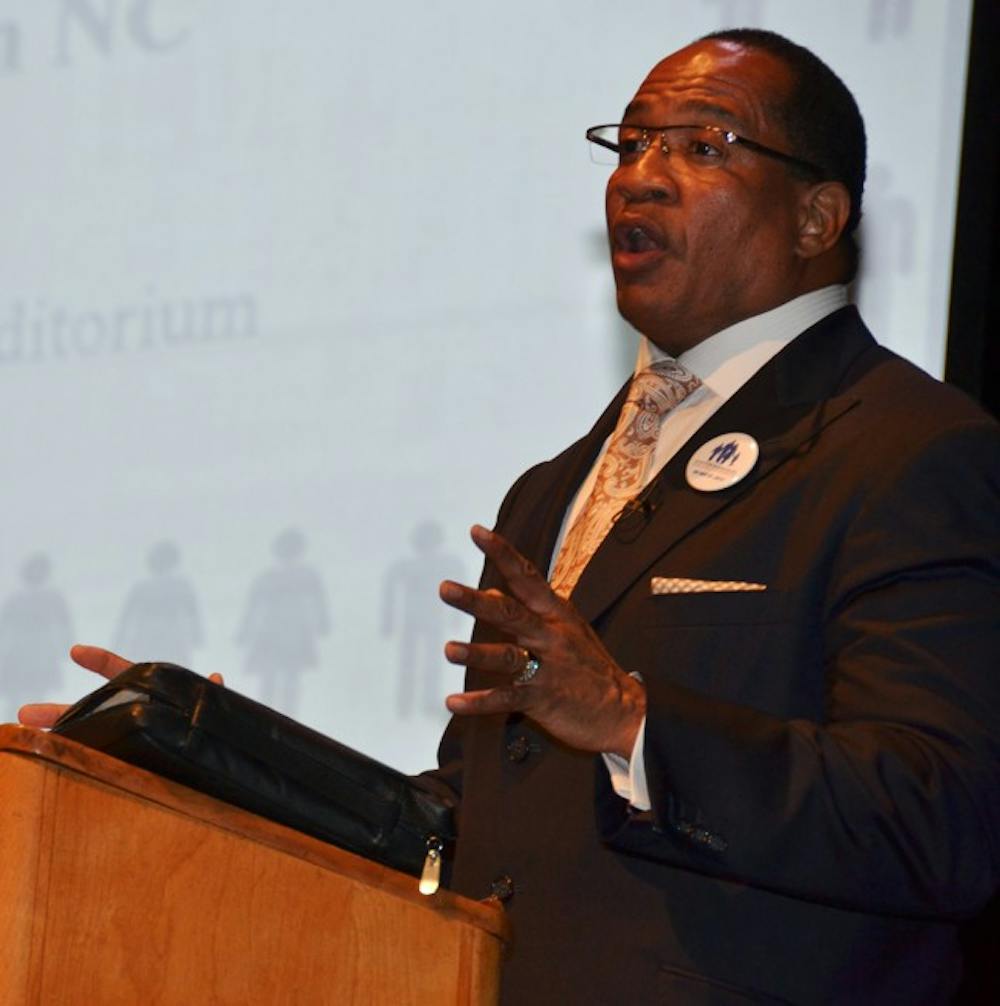The Amendment One debate at Meredith College Monday night began as “nonpartisan,” but it did not end that way.
The panel discussion quickly devolved into heated arguments about religion, family — and race.
“This was one of the most divisive events I’ve seen on the campaign trail,” said Jen Jones, communications director at Equality N.C., an organization working against the amendment.
The panelists ranged from UNC law professor Maxine Eichner, who has spoken against the amendment, to pro-amendment attorney Anthony Biller, to one of the only lesbian Baptist preachers in the South, Nancy Petty.
The audience’s opinions were as divided as the panelists’.
The front of the room, reserved for students, was mostly white, young and female. They cheered for Eichner’s arguments about the amendment denying benefits for domestic partnerships and the personal appeal by Caroline Mann, a lesbian psychology professor at Meredith College.
“I’m gay, so this is obviously very important to me, and if this goes through, it will really affect me,” said Emily Rose, a student at Meredith College.
But the rest of the first floor was dominated by members of the Upper Room Church of God in Christ — mostly black and middle-aged — and vocally opposed to same-sex unions.
Patrick Wooden, the pastor at Upper Room, was a panelist at the event who had members of his congregation present in support.



